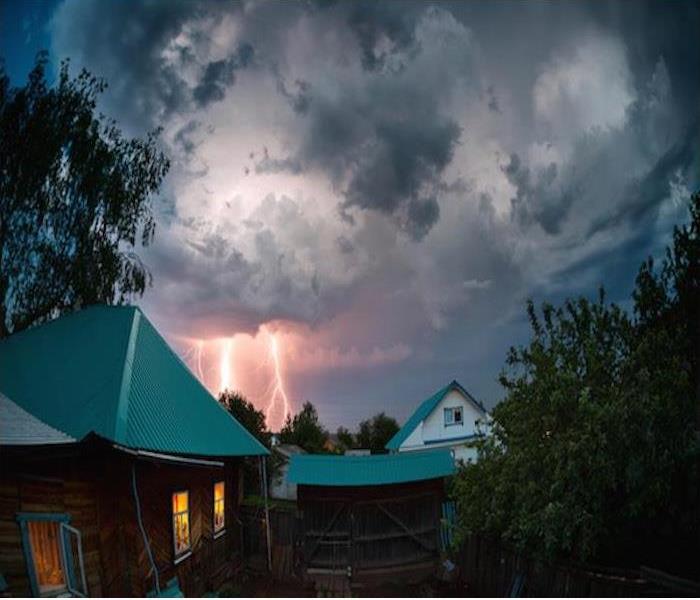6 Tips for Preventing Storm Damage
1/24/2022 (Permalink)
The clouds darken in the sky. The winds start to pick up. A major storm is headed your way.
If you have a major storm system headed in your direction, you need to make sure you’re prepared to avoid potential storm damage. Depending on the size of the storm, you may need to prepare for it in advance.
In Florida, the annual hurricane season means that you should always know how to prepare for a potential major storm that could hit. The following are some tips to make sure you’re prepared to limit the amount the damage to your home.
Preparation Weeks Before the Storm
If you’re in an area where major storms could hit your town, like in Florida, it’s important to keep your trees trimmed that could potentially fall on your house. Make sure any diseased branches, dead branches, or low hanging arms are removed so they won’t fall and damage your house should a storm come.
These branches can be removed at any point during the year but if you live in a climate further north that gets cold during the winter, it’s best to clip the branches during the springtime before the leaves appear. Repeat the process again in the winter when more trees are in a dormant state.
Last Minute Preparation
While much of the preparation for a major storm may have been taken care of during the days and weeks prior to the storm’s arrival such as trimming trees or putting boards over windows, there are some preparations that have to wait until the last minute.
First put your car inside of your garage and back it up to the inside door. You do this so the door won’t twist-up if the winds become too vicious. Next put bikes, children’s toys, potted plants, outside furniture, or anything that can be stored in the remaining parts of the garage. Anything that’s left outside and not nailed down needs to be stored in the garage as well. If not stored during the storm, those objects can become projectiles that could damage your home.
Make sure to tightly shut every window in the house and move away from them. During the storm it’s important to be in a room without windows so if any projectiles fly through the window, you’ll be safe. Unplug any small electrical appliances and shut down your personal computer.
During the storm, it’s important to have a battery-powered radio on hand to supply you with all the news of the storm going on outside. Find your local station that is a good source of weather information before the power goes out so you’ll just have to turn it on and be at the right station.
Lightning
If you want to be extra cautious you can purchase lightning conductor rods to install at the highest point of your house. You’ll want to make sure they’re grounded so that any direct strike will immediately be directed straight into the ground.
Moving the Movable
Make sure that you have everything that is outside either secured to the ground or brought inside. Heavy winds have the ability to pick up and throw lighter objects through the air and potentially damage your home or injure you. Larger objects like grills may be able to be left outside but you’ll want to be certain that it won’t cause damage to your home when the storm comes.
Leaks
It’s important to fix any leaks you may have around your home before the storm comes. If the storm is likely to dump a great deal of water in your area, a simple drip can turn into a flow of water and once the storm arrives, there’s nothing you can do about it. These unfixed leaks can become washouts and cause significant and costly damage to your home.
Prepare for Possible Evacuation
If the storm is bad enough, either a voluntary or mandatory evacuation could be called forcing you to vacate your home. To prepare for the possibility of an evacuation in advance, put together a small suitcase with essentials like a change of clothes and important objects like photos or anything that holds significant importance to you.
Put the suitcase somewhere it will stay safe and out of the way so you won’t trip over it. Also make sure that it’s stored somewhere that’s easy to get to so you can make a quick getaway if the time comes for you to evacuate.
If a major storm hits, follow these guidelines to help prevent potential storm damage to your home. But sometimes, regardless of how much you prepare, damage will occur. If you suffer storm damage, call on SERVPRO Of Osceola County, to come to your rescue.

 24/7 Emergency Service
24/7 Emergency Service
